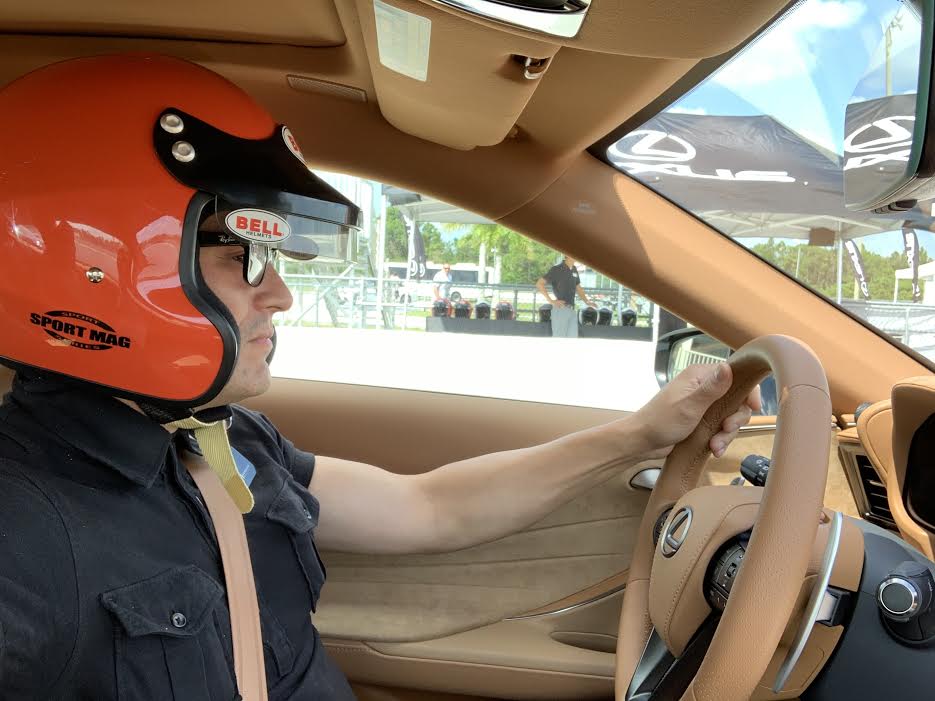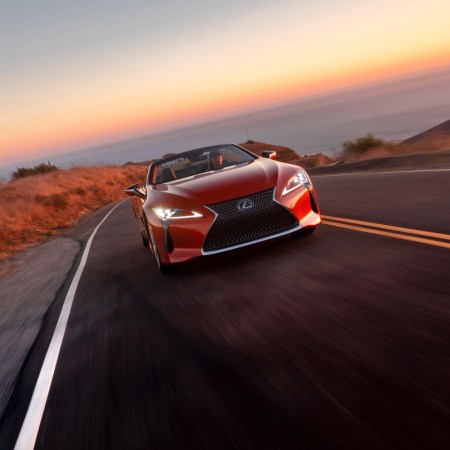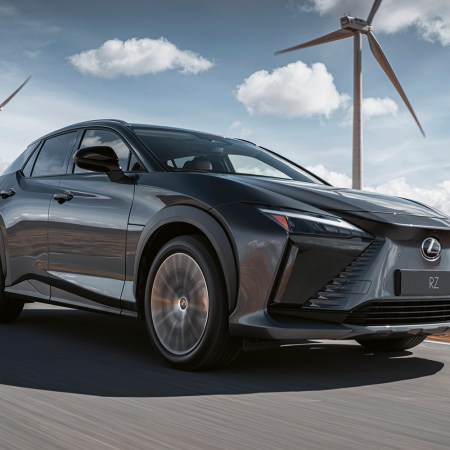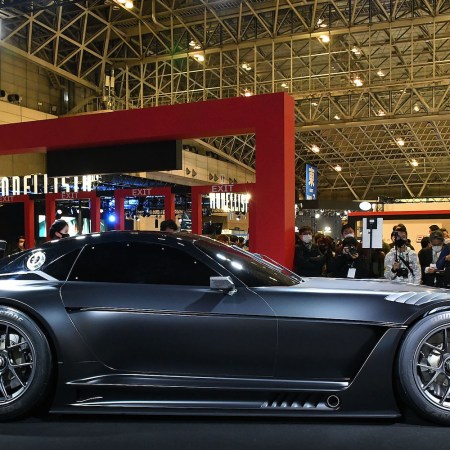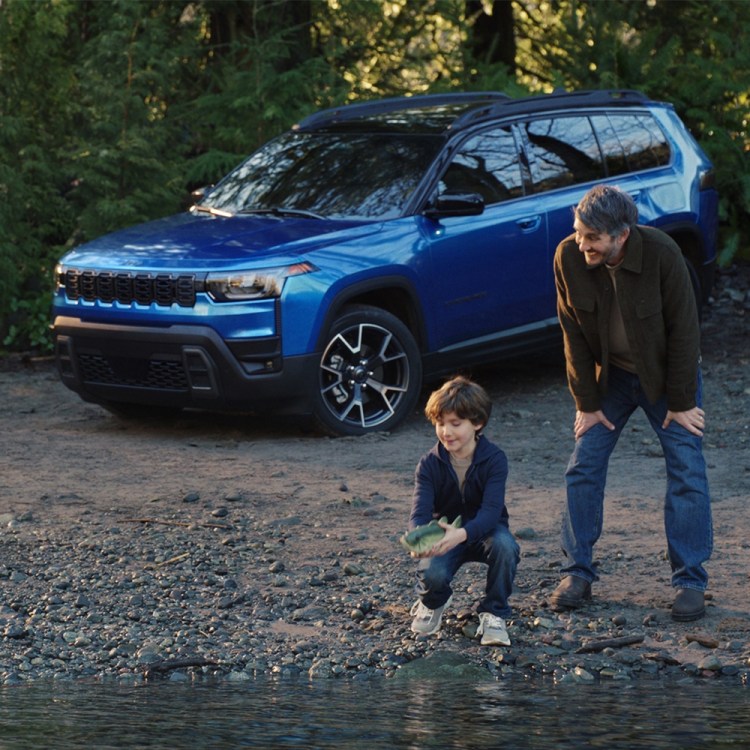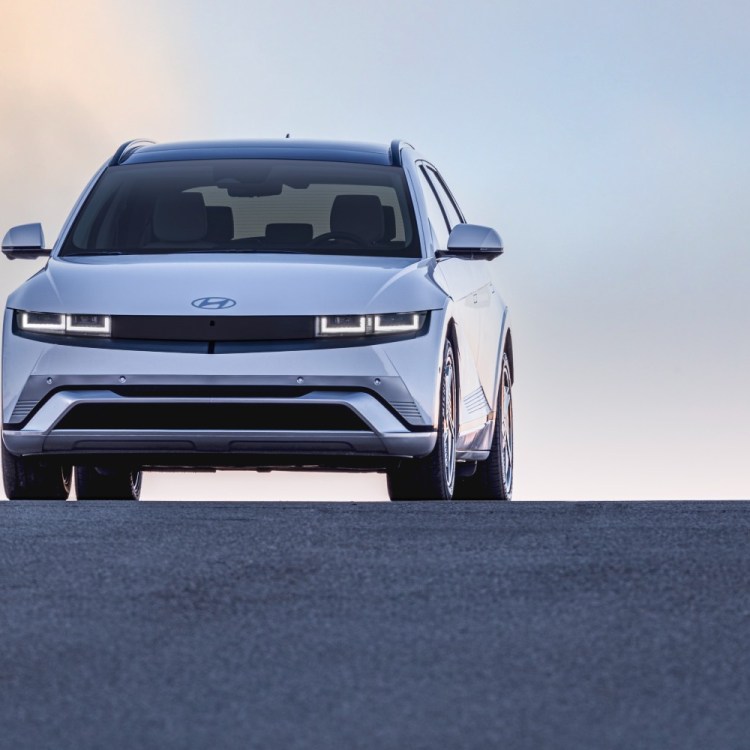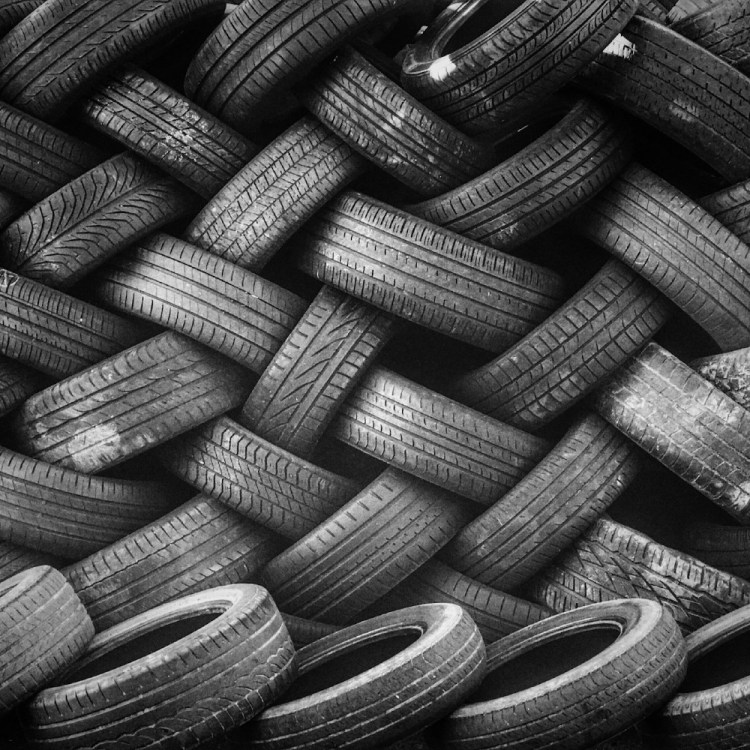Every bank robber worth their salt knows to aim for the rear of a vehicle when smashing out of a roadblock. Just as professional racing drivers understand the importance of mindful breathing when tearing up the tarmac at 200 m.p.h. But if, like me, you’re not destined for Talladega, nor planning to rob any banks, what can we learn about commuting and weekend trips from Lexus consultant and Navy SEALs/SOG driving instructor, Lance King?
I recently spent several days with Lexus in Florida, at the Palm Beach International Raceway, chatting to experts like King, and learning how to drive on a track from racing legend and Lexus brand ambassador, Scott Pruett. After ten minutes behind the wheel of a Lexus LC, I realized that I was not actually a badass driver — I was just bad. Whether it was the decade spent dodging potholes on the Brooklyn Queens Expressway, or crawling along the FDR at 5 m.p.h. I’ll never know — but along with bad habits — I had no idea what modern vehicles were capable of.
As I strapped on a helmet amidst the roar of road-legal Lexus coupes and sedans thundering around the raceway, I was surprised to not hear screeching tires, nor smell the blue smoke of burning rubber. According to King, ABS is an old technology, but not one that’s understood by most drivers on the road. I got to test out ABS properly, as one of the first activities Lexus had arranged for its media guests was a full-on emergency stop. This was fantastic — as in 20 years of driving, I’ve never actually had to do an emergency stop and actually bore some apprehension about what would happen if I did slam my foot on the pedal. I’ve braked hard of course — but never actually smashed the pedal like in some Mad Max version of Whack-a-Mole.
Belted and helmeted behind the wheel of a new LC, I was told to accelerate hard toward a flag at 50 yards then slam my foot on the pedal as though headed toward a cliff edge through a village of helpless baby rabbits. Although I would have liked some smoke, screeching, and fishtailing — it didn’t happen. In fact, the car stopped so quickly, it was rather disappointing. I circled around to do it again — this time accelerating like the guy in Jurassic Park when he spots a T-Rex in his side mirror. More of the same. The chassis didn’t even lurch forward. I could have been safely drinking a smoothie with no lid.
According to King, pressing the brake pedal as hard as you can on a vehicle with ABS, means the wheels will never lock up — so you can actually steer the car, which means slowing down and simultaneously steering around any object in your path. ABS works because speed sensors (attached to all wheels) detect when a wheel is about to lock up, then a modulator unit partially releases the brake pad on that wheel. This means the wheels can rotate intermittently, allowing the driver to steer. This causes the pedal to ‘kick-back’ a little, which makes some drivers think they’ve broken something, but it’s actually a sign that everyone works as it should.
I’ve braked hard of course — but never actually smashed the pedal like in some Mad Max version of Whack-a-Mole.
“Many new performance cars,” says King, “even come with stability control that has torque vectoring to help the car corner better.” This technology helps get less experienced drivers out of trouble. So when you hear screeching tires behind you on the West Side Highway, be afraid, be very afraid — because you’re about to get hit by a car with no ABS, and hence, no chance the driver can steer around you.
My car for the day was a brand new Lexus LC 500, which retails for around $92,000. The exterior presents an elegant, almost regal appearance, powerful but not aggressive, expensive, but not ostentatious. This enviable mélange of virtues is the work of Akio Toyoda, visionary president of the Toyota Motor Company and grandson of the company’s founder. At a press cocktail party the night before, after giving each journalist a sticker, Akio explained that when he first took over the company, a child asked him why the cars looked so boring.
In the spirit of Beauty and the Beast, hiding beneath the graceful exterior of the LC is a monster, five-liter, naturally aspirated V8 which issues a full-throated roar, producing an output of 471 hp and 398lb.-ft. of peak torque, which gives a 0-to-60 m.p.h. time of 4.4 seconds. Embarrassingly, when it was my turn on the starting grid, I couldn’t find DRIVE. Then, for some reason (known only to my subconscious) I popped the hood. Before getting in the vehicle however, I had spent some time in the classroom with King, learning the best way for drivers to position themselves.
“You should have a nice bend in your legs with the balls of the feet on the pedals so if you have to brake hard, your legs are not stretched out. Also, the seat back should be upright with your hands at nine and three on the steering wheel, keep adjusting until you can turn the wheel 190 degrees without pulling your shoulders off the seat. You also want a nice bent arm and good grip.”
King is a mix of toughness and intelligence — imagine Clint Eastwood with a Ph.D. Although he consults for companies like Lexus, he is also a stunt driver, stunt producer and was almost the youngest world champion in motorcycle racing — losing torturously by one point.
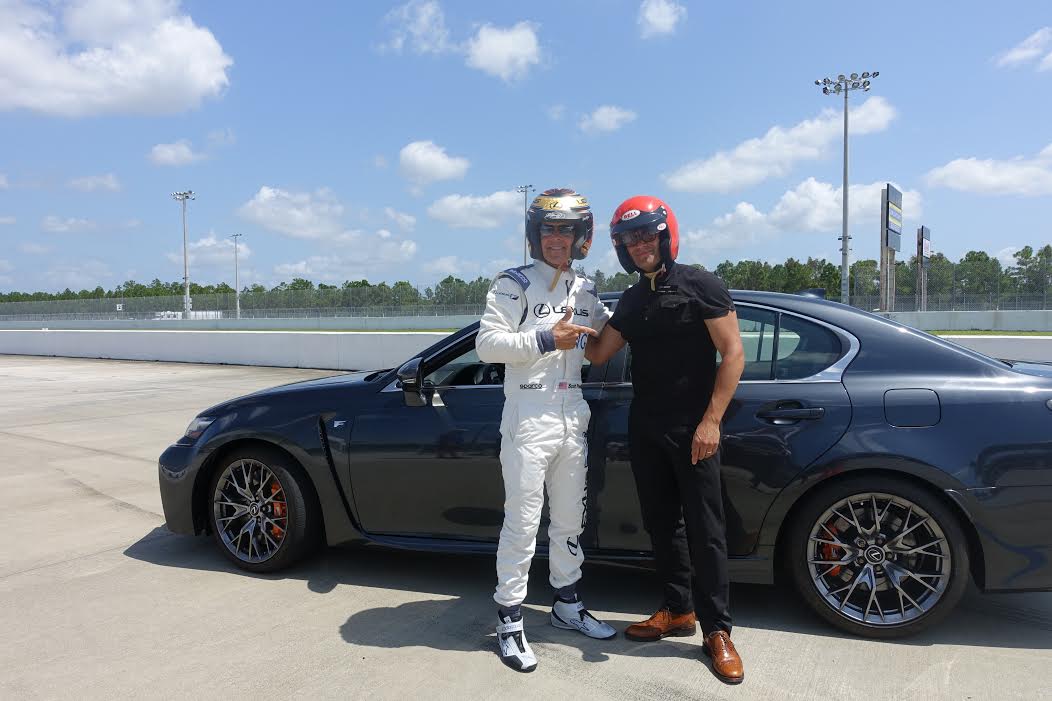
“Use ankle and calf muscles,” he advises, “thighs should be relaxed, and don’t do anything that surprises the car. Always give the vehicle a hint of what you want to do, brake gradually, then hard. Treat the controls like a dimmer switch rather than on and off.” My favorite suggestion, however, was to imagine there’s an egg between your foot and the pedal. When not consulting for Lexus, King trains all types of high-level military personnel. “Whether you’re a medic or a sniper,” he says, “everyone has to know how to drive.”
Dividing my time between King and Pruett, I learned quickly that the most important component of driving is vision. Looking forward is perhaps the most important lesson for driving well, as often, when a person is worried about hitting something, they look at it, and then hit it.
“When people do something erratic,” King explains, “it’s usually because they’re not looking ahead. Your eyes should always be where you want to go, and the hands always follow the eyes.” Another common bad habit is being too aggressive with the steering, brake and gas pedals. “Always stay calm,” says King, “take deep breaths and remember that anger slows reaction times.”
After a few laps, I start shifting with the LC’s paddles, and King gives me advice on cornering.
“It’s about managing weight,” he says. “When you brake or lift off the gas pedal you transfer weight to the front tires and the tire patch [rubber in contact with the road] increases to give more grip for turning, which is good. When you accelerate, the weight goes to the rear and gives more traction to the back tires, but decreases the tire patch up front, that’s not a good time to turn. If it is a sweeping turn you can add gas until the car starts to push off the line telling you that too much weight is being transferred to the back, taking too much weight off the front and decreasing the tire patch on the ground which results in a loss of traction. If you lift off the gas pedal a little it transfers weight up front, and more tire path equals more grip.”
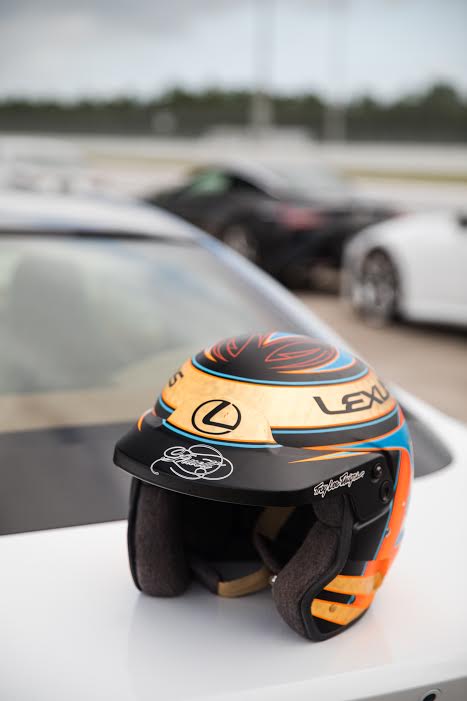
When it comes to avoiding accidents on the freeway, King is clear. “Try to avoid following a big truck you can’t see around. Always try and position yourself so you can see 2/3 cars ahead. An accident does not happen all of a sudden, it is a series of events, so if you can see in front of the car in front of you, that gives you time to react before the car in front of you does —remember to always look where you want to go. If you look at what you do not want to hit, you’ll probably drive right into it without knowing.” Another of King’s safety tips includes being defensive and expecting that no one can see you. “Always try to position yourself out of other drivers’ blind spots.”
This article appeared in an InsideHook newsletter. Sign up for free to get more on travel, wellness, style, drinking, and culture.
